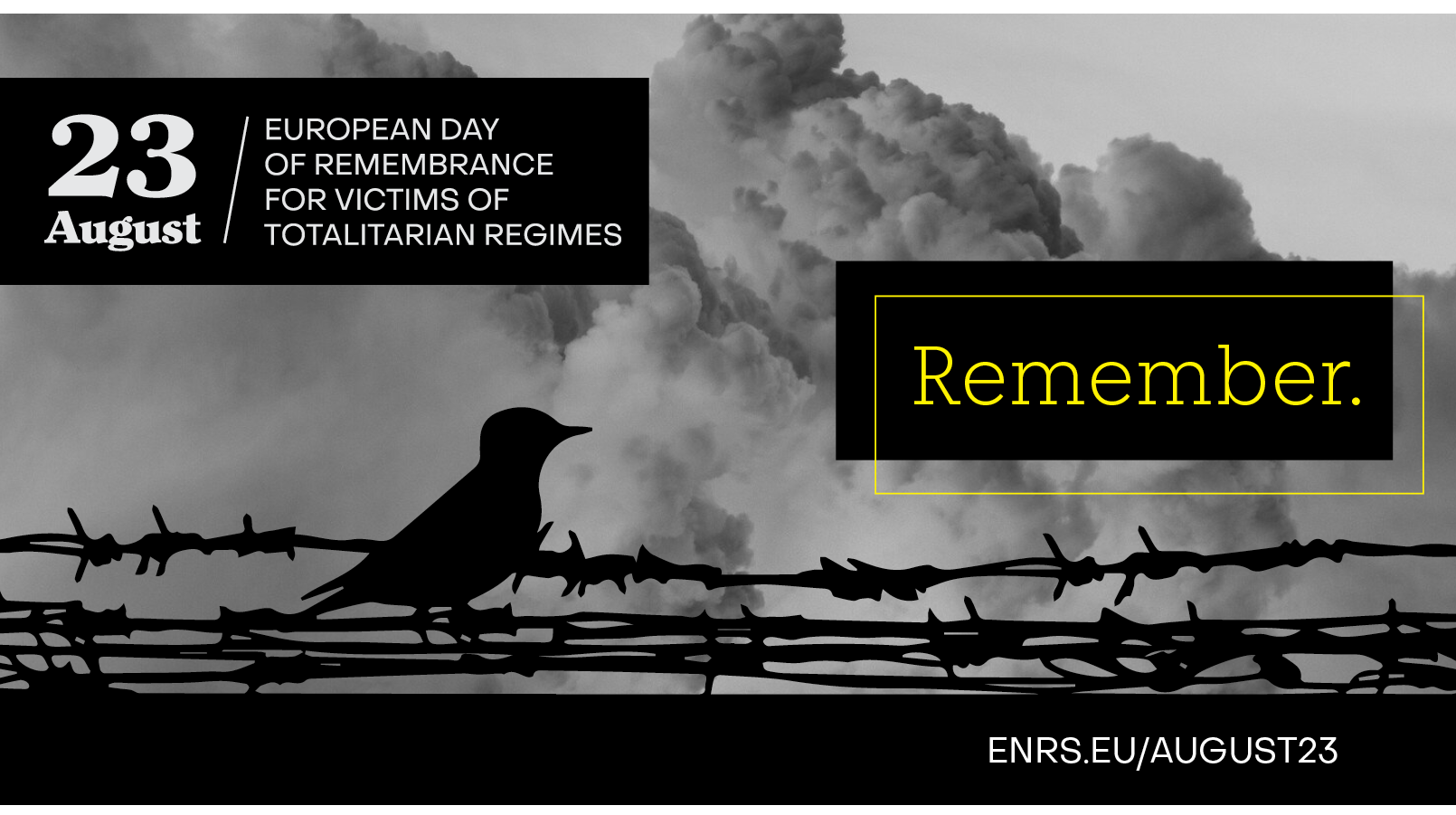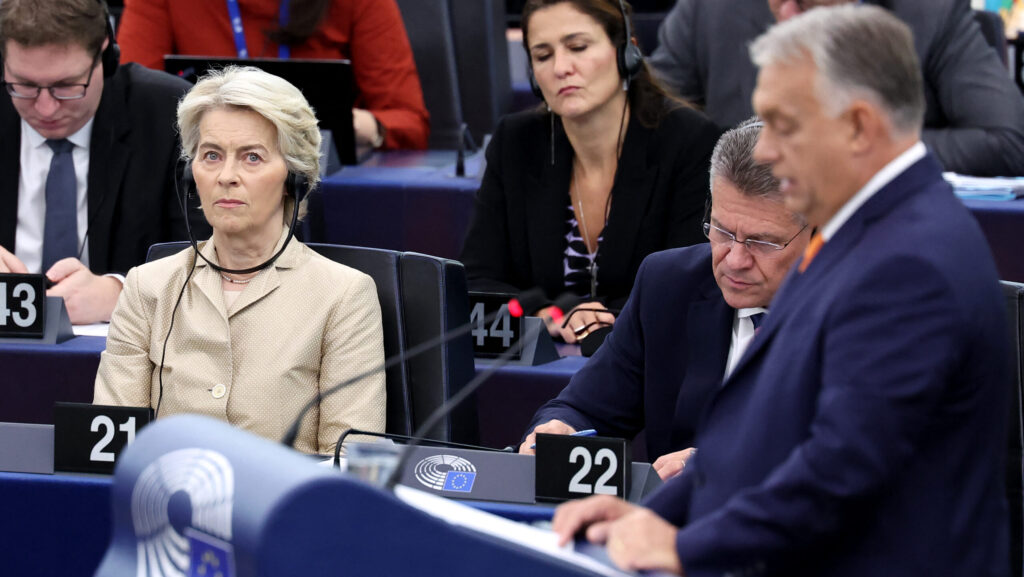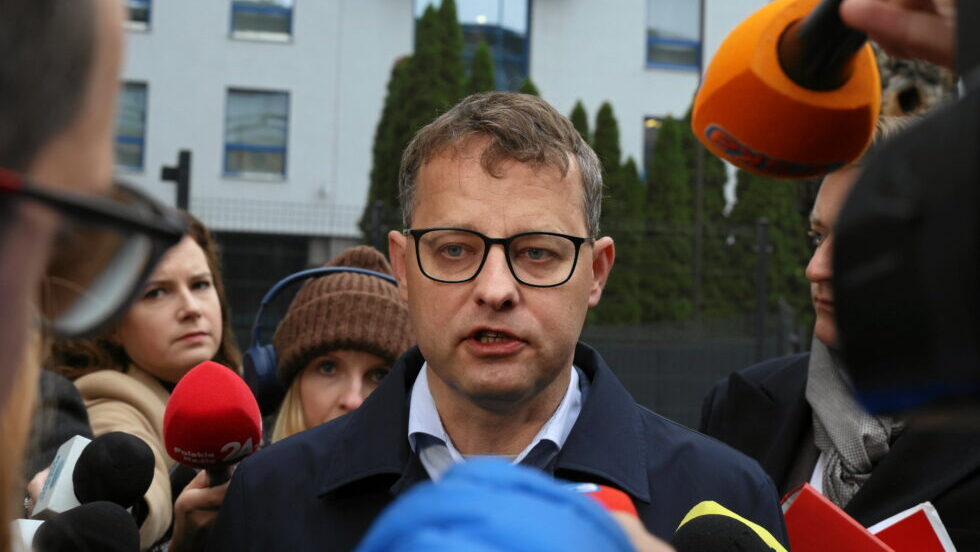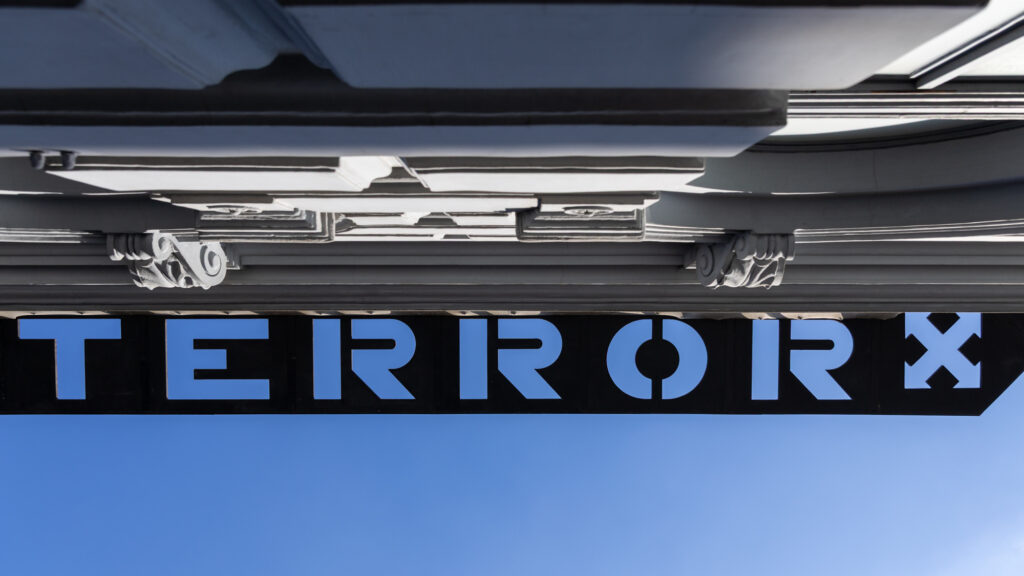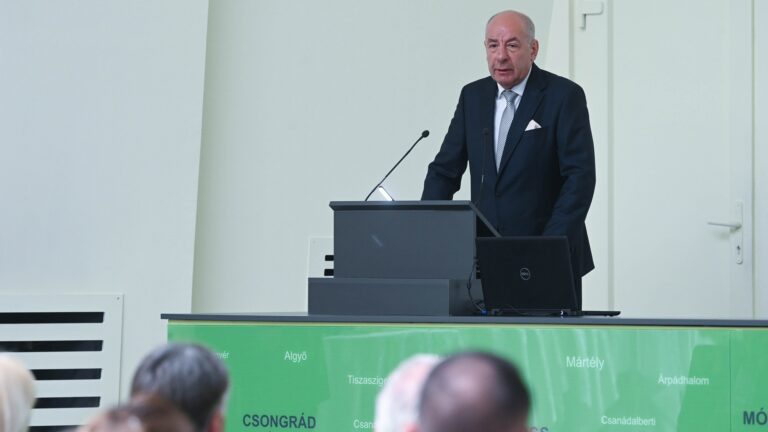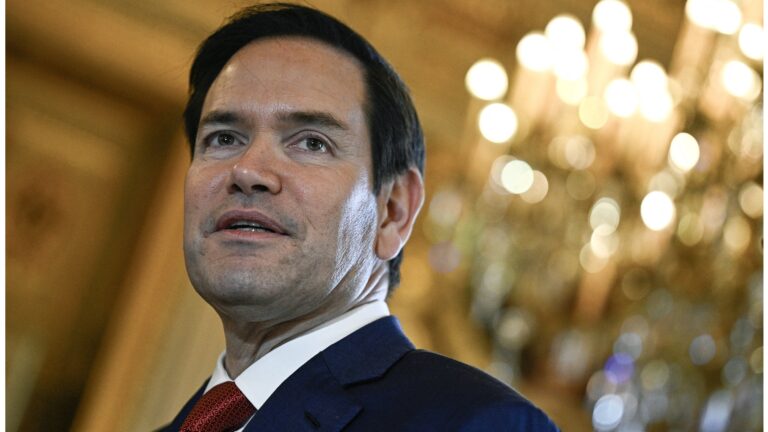The following is the unedited version of a press release kindly provided to us by the European Network Remembrance and Solidarity (ENRS).
23 August marks the European Day of Remembrance for Victims of Totalitarian Regimes, proclaimed by the European Parliament in 2009. This day 85 years ago, the Molotov-Ribbentrop Pact was signed between Nazi Germany and the Soviet Union that paved the way for World War II and its dire consequences—from mass deportations and exterminations to slave labour, war crimes, the Holocaust and ethnic cleansing, long years of enslavement, territorial, material and personal losses.
For the tenth time,
the European Network Remembrance and Solidarity (ENRS) highlights the importance of these historical events and encourages to honour the victims of totalitarianisms
through the international public education campaign ‘Remember. August 23’.
Short film spots dedicated to people whose lives were marked by dramatic struggles against totalitarian systems, commemorative pins, a media and outdoor campaign in selected European capitals, articles on contemporary controversies surrounding the Molotov-Ribbentrop Pact, and a ‘Guide to the Commemoration of 23 August’—are just some of the activities of this year’s campaign. The series of events will culminate in the unveiling of a mural in Warsaw, Poland, encouraging reflection and the preservation of living testimonies of the past.
The heroes of this year’s campaign are Johann Trollmann (1907–1944), a German boxer of Roma origin, a victim of Nazi persecution, murdered by a kapo whom he had previously defeated in the ring, and Emílie Machálková (1926–2017), a Czech woman of Roma origin, Holocaust survivor and promoter of Roma culture.
In previous years, the ENRS presented the fates of:
- Władysław Bartoszewski (1922–2015), Polish social activist, historian and politician, Auschwitz concentration camp prisoner, Home Army soldier, imprisoned several times by the communist authorities,
- Boris Romanchenko (1926–2022), Ukrainian activist, Holocaust survivor, victim of Russian aggression against Ukraine,
- Doina Cornea (1929–2018), a Romanian dissident who had the courage to publicly oppose the bloody rule of communist dictator Nicolae Ceausescu in the 1980s,
- Ieva Lase (1916–2002), a Latvian translator and French teacher who was twice imprisoned for her dissident activities, Jaan Kross (1920–2007), Estonian poet and writer, arrested during the German occupation of Estonia and later imprisoned by the NKVD and sent to the gulags,
- Kazimierz Moczarski (1907–1975), Polish journalist, writer, Home Army soldier and author of ‘Conversations with an Executioner’,
- Milada Horáková (1901–1950), Czech politician, sentenced to death during the Stalinist period in Czechoslovakia,
- Juliana Zarchi (1938–1991), a Lithuanian of German-Jewish origin who experienced both totalitarianisms, Mala Zimetbaum, a Jew, and Edek Galiński, a Pole, prisoners in the Auschwitz concentration camp,
- Péter Mansfeld (1941–1959), the youngest victim of the 1956 Hungarian repression.
As part of the commemoration, the website www.enrs.eu will also feature a text by Professor Jan Rydel explaining the far-reaching consequences of the events of August 1939, as well as a guide with useful information about the 23 August commemorations. On the same day, a mural by Marcin Czaja will be unveiled on the wall of the building at 5 Lipowa Street, near the University of Warsaw—a unique visualisation of the intergenerational memory of the events of 85 years ago and their traces in our everyday lives.
The posters with the profiles of selected protagonists will appear in the centres of European capitals, including Warsaw, Vilnius, Prague and Berlin. The international media and outdoor campaign will be accompanied by a pin bearing the inscription ‘Remember. August 23’, a symbolic sign of remembrance
encouraging politicians, journalists, artists, social activists and young people from all over Europe to discuss the World War II and its aftermath every year.
The stamps will be distributed in museums and memorial sites across Europe and will also be available at the ENRS’s headquarters at 37 Zielna Street in Warsaw.
More information on the campaign is available at: www.enrs.eu/August23.
All videos are also available on the ENRS YouTube profile: https://cutt.ly/Remember-23August.
Related articles:

